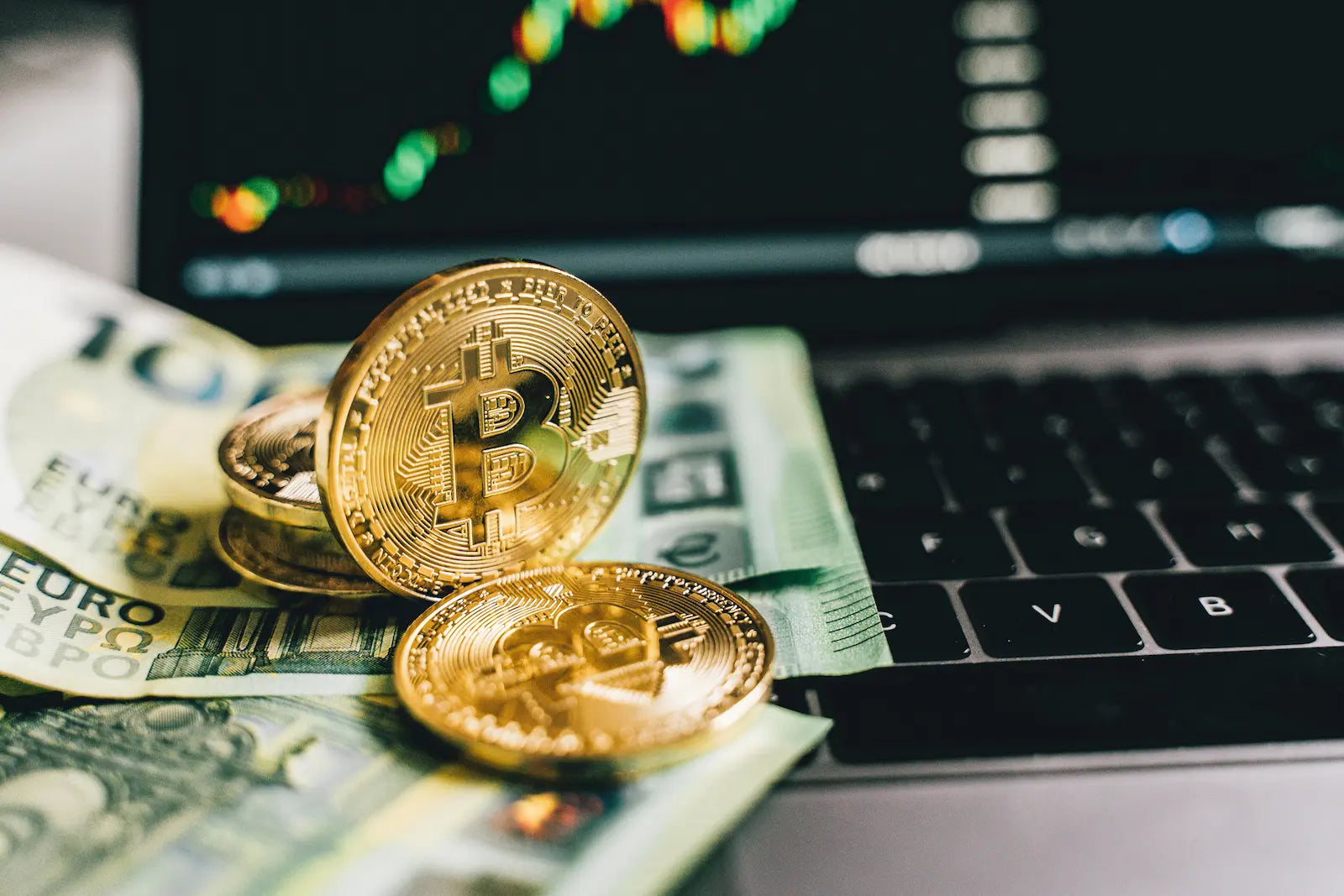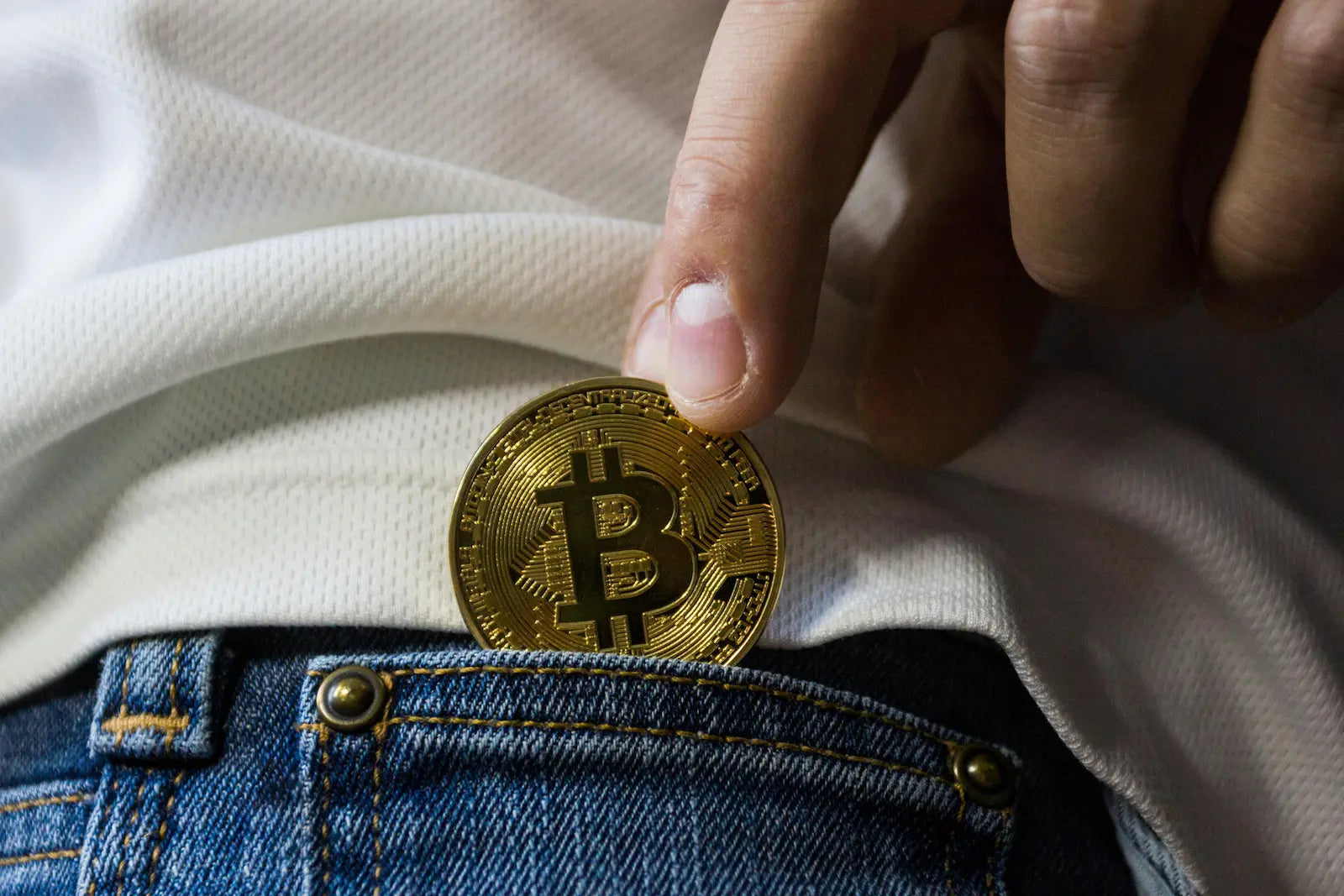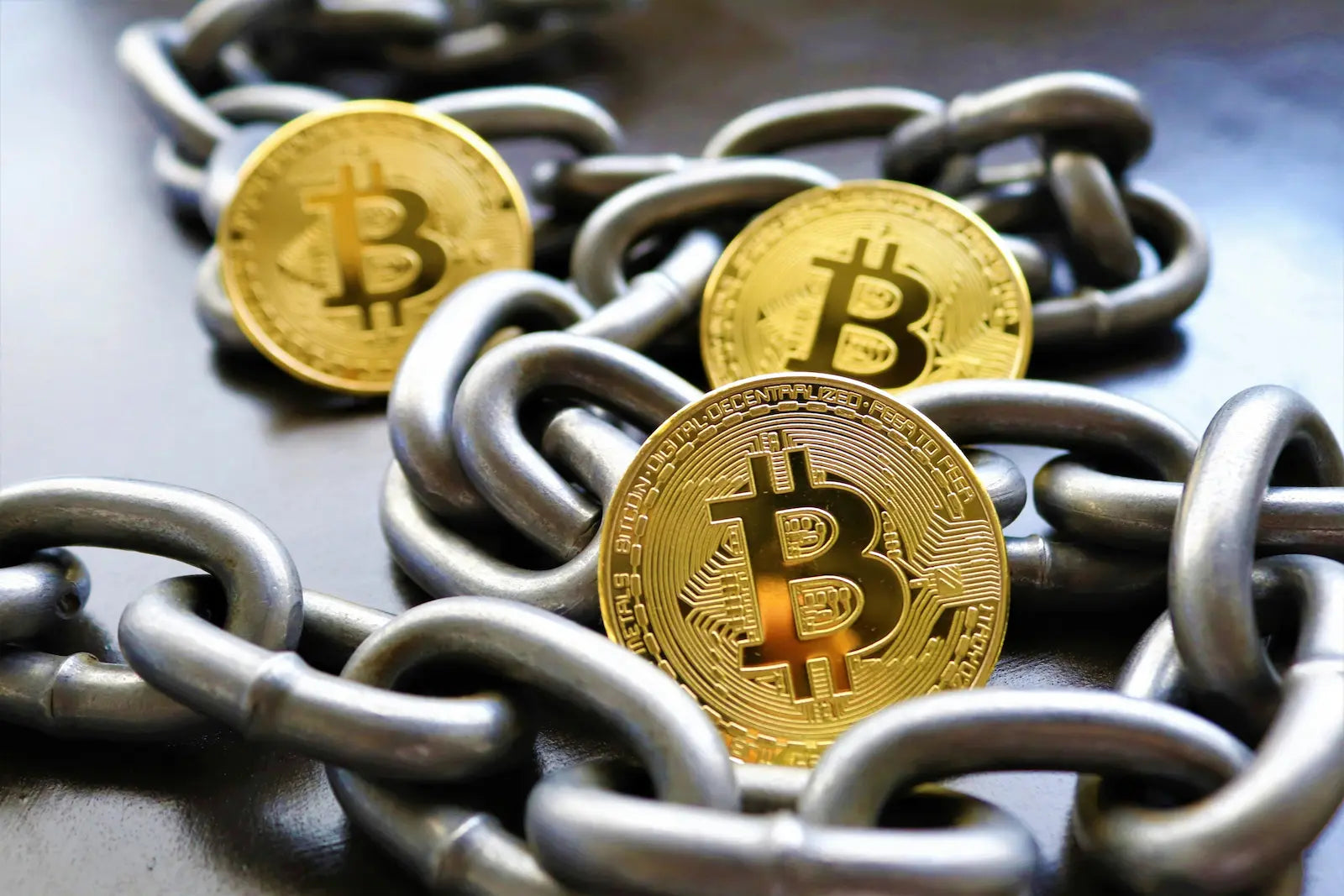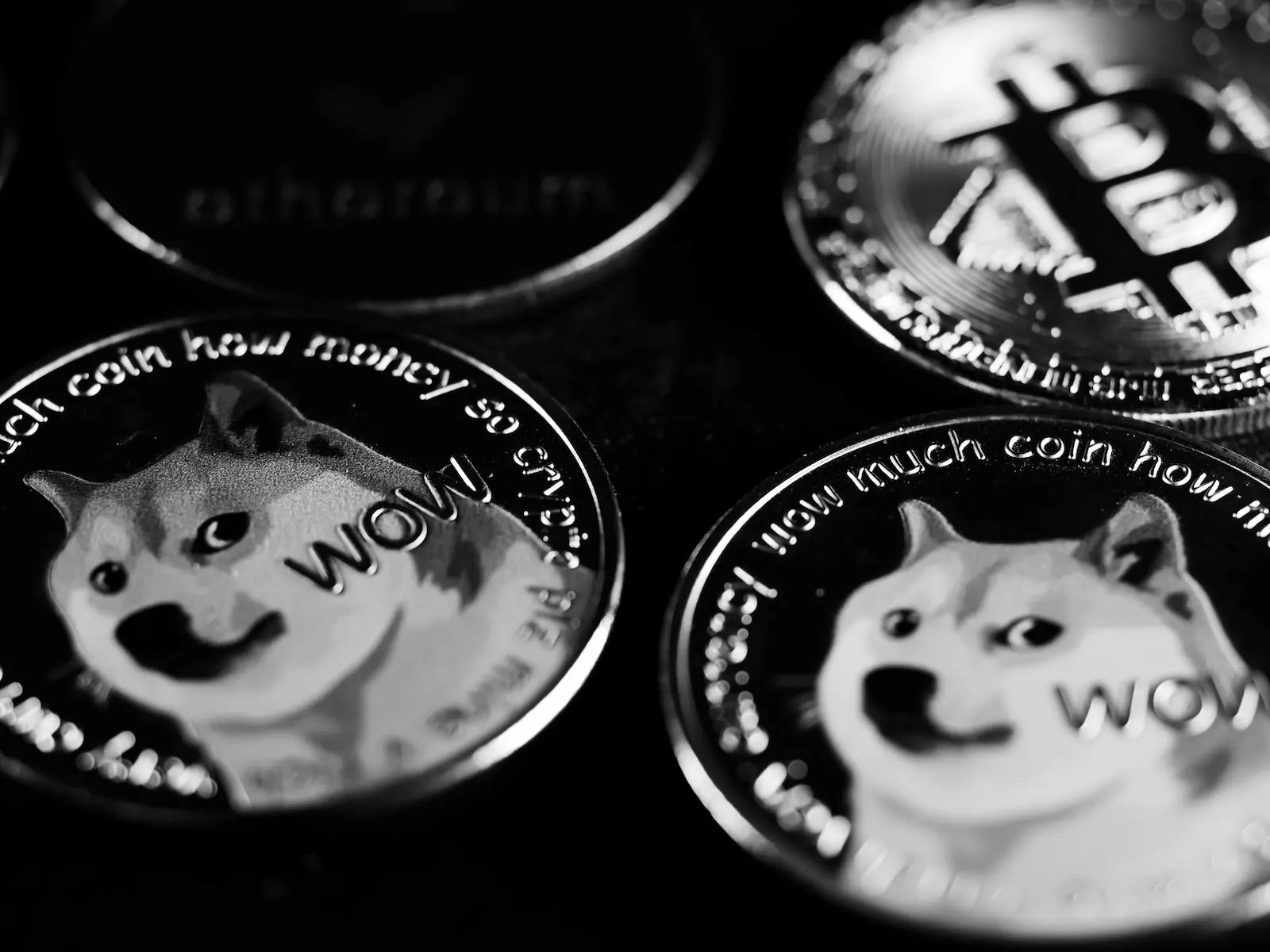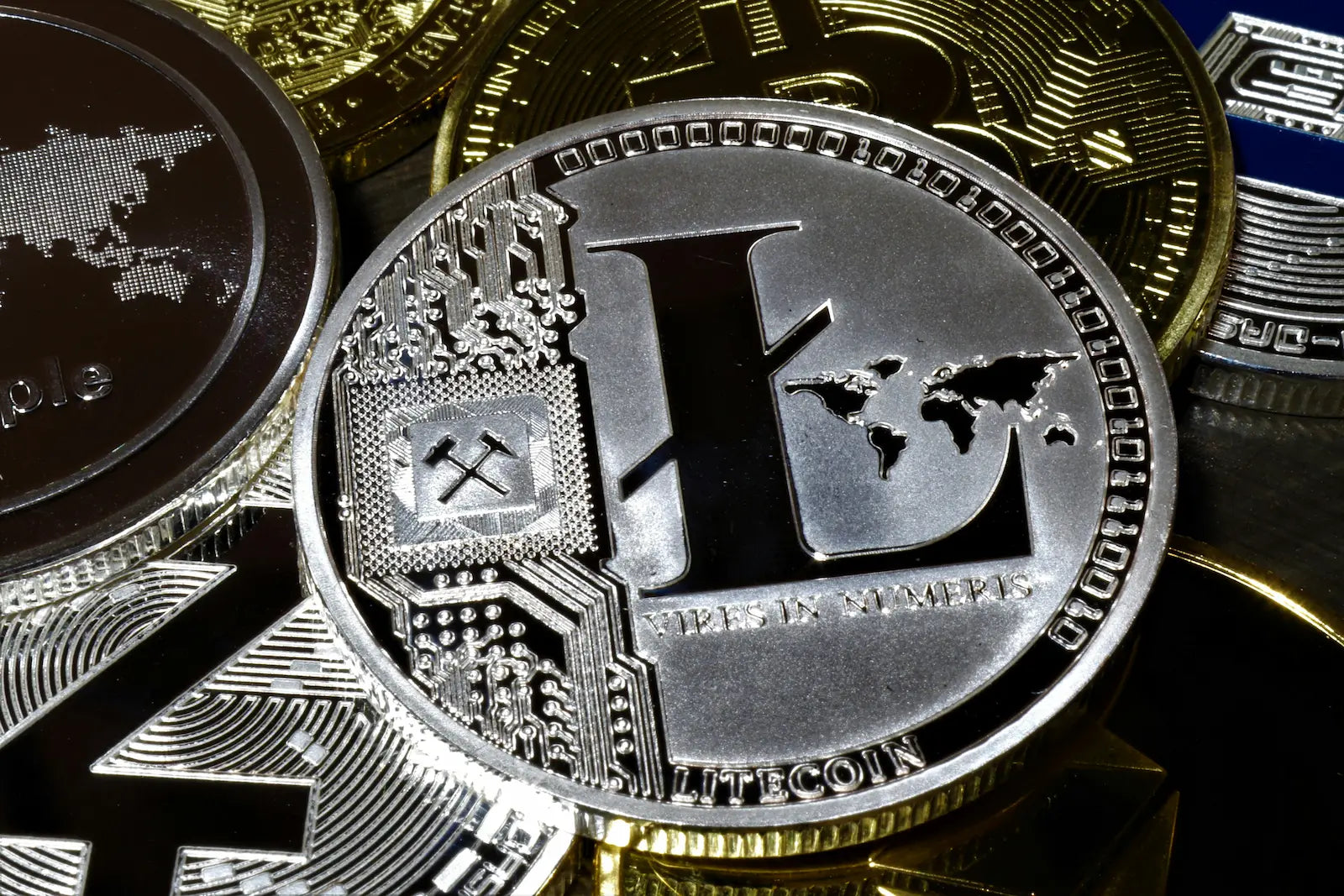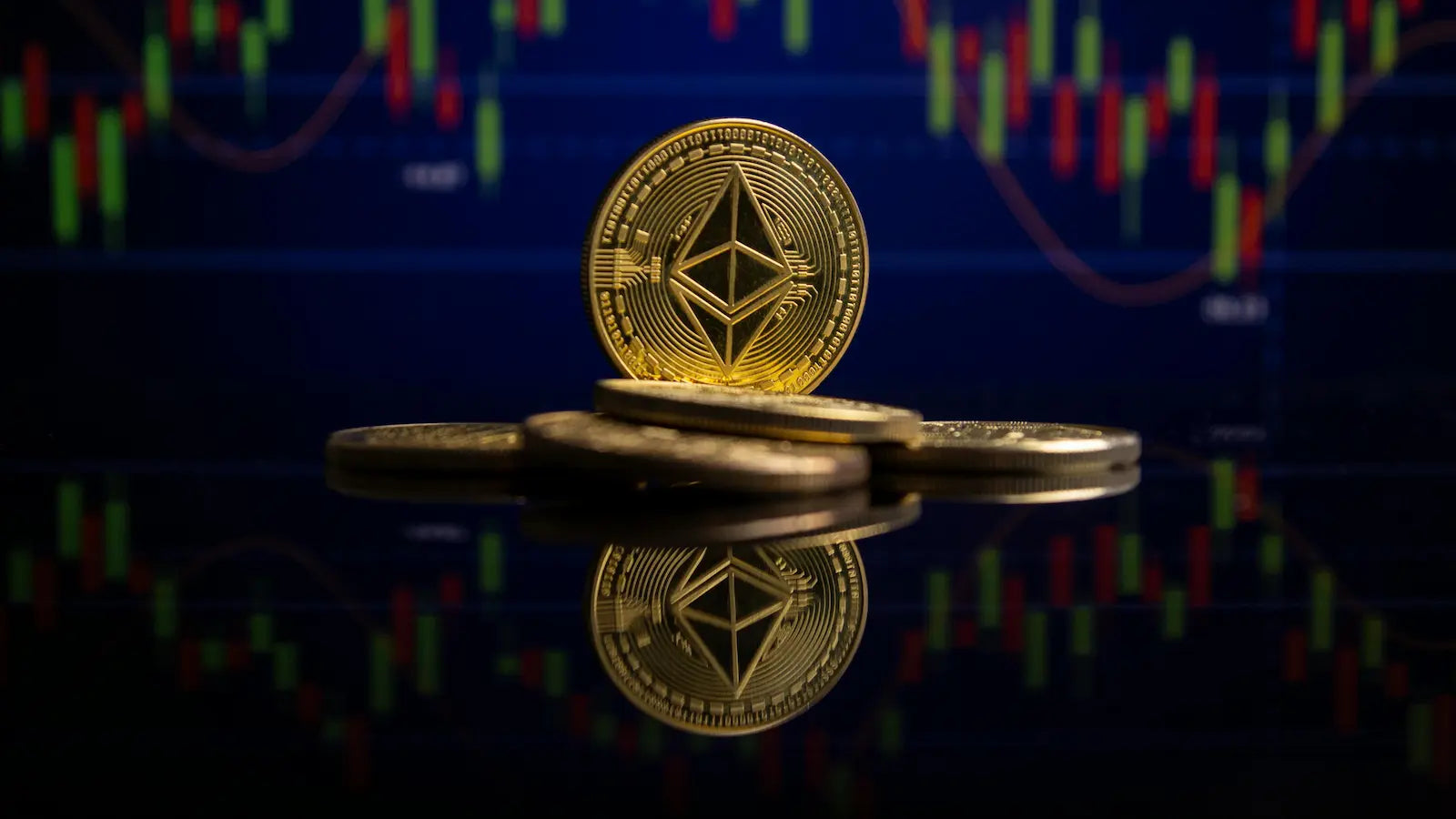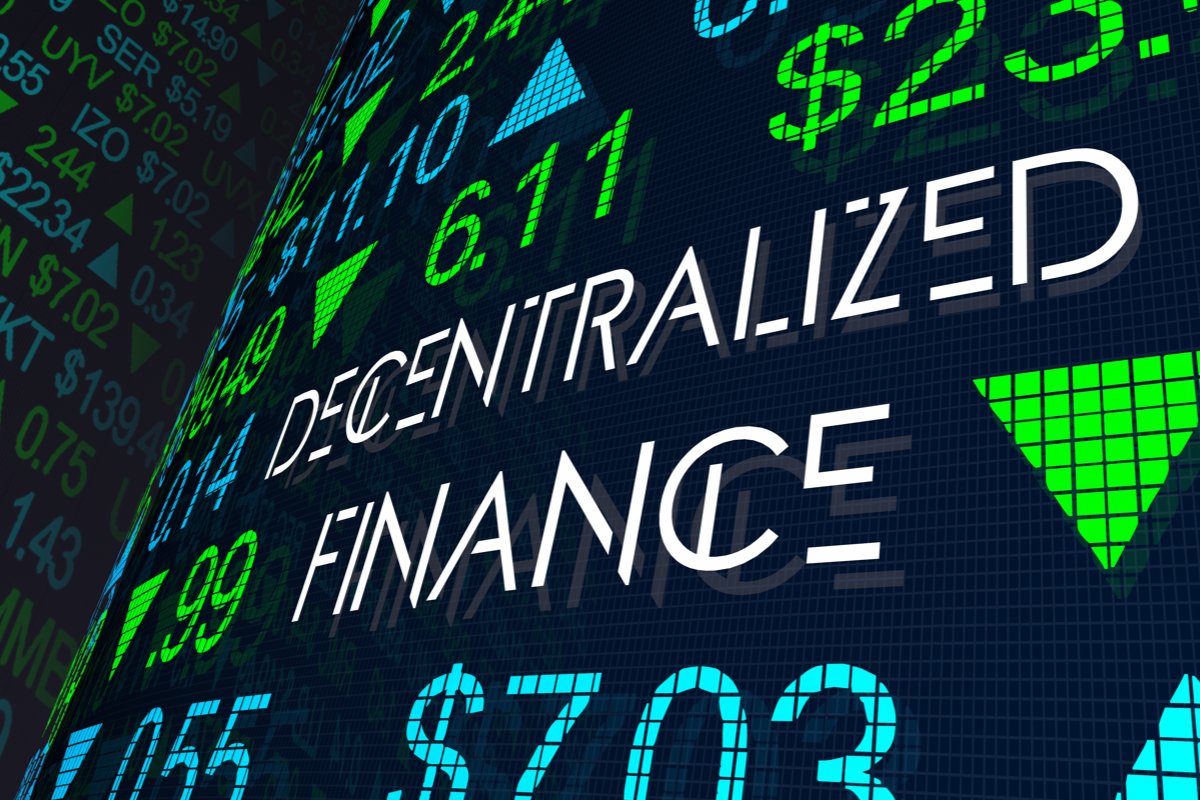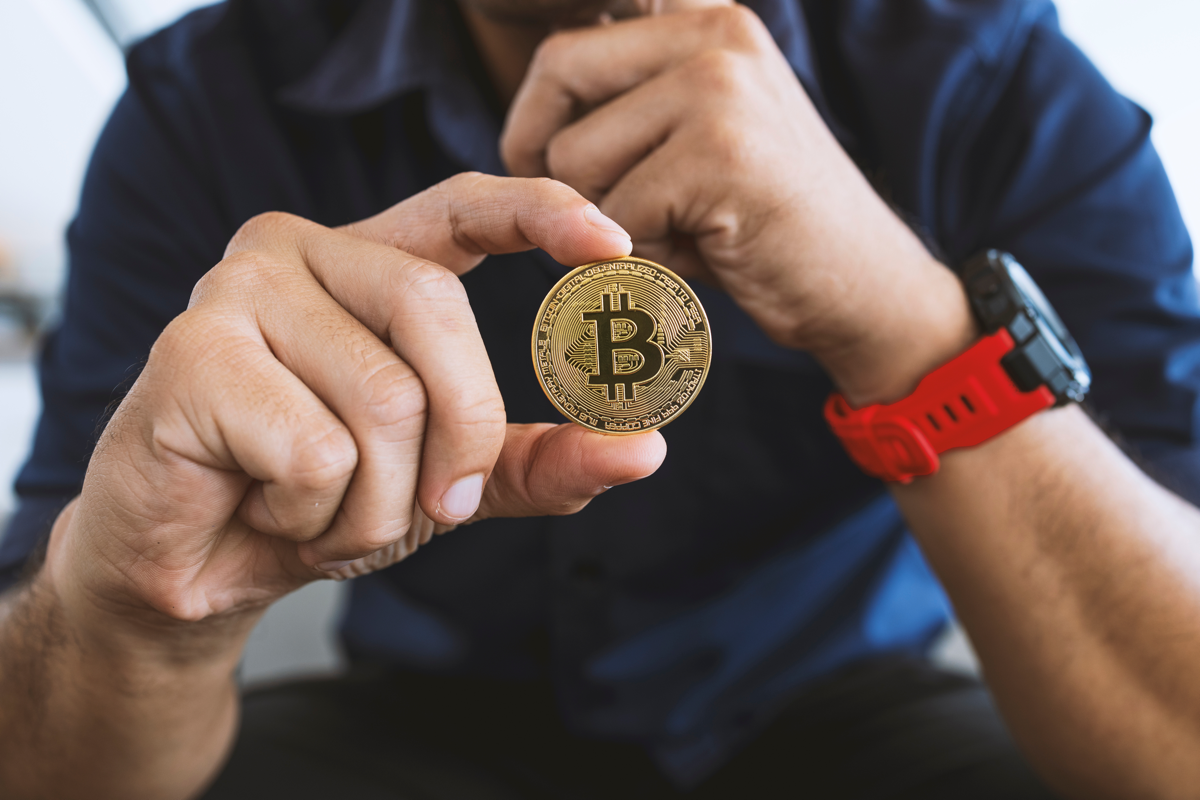Bitcoin vs. Gold - Which is better?
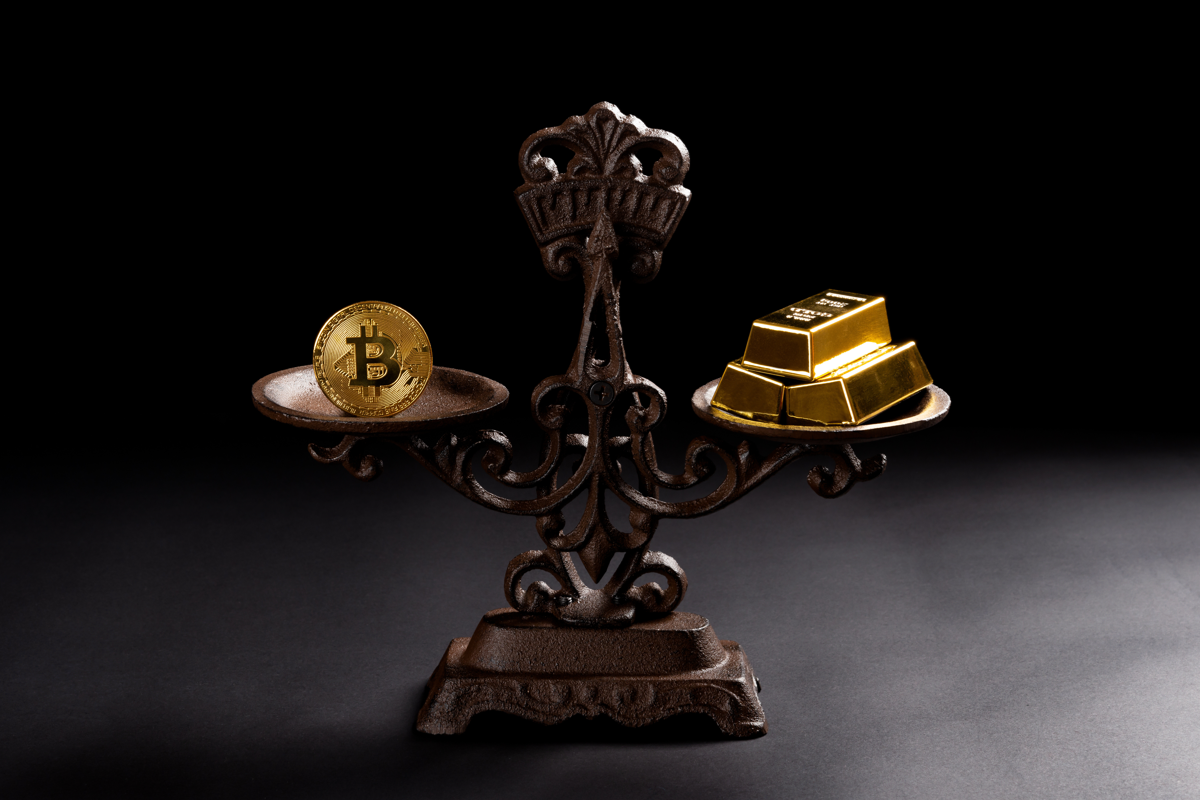
When it comes to Bitcoin and its function, even crypto enthusiasts are divided. As a rule, these can be roughly divided into three camps: those who see Bitcoin as a means of storing value, as a medium of exchange, or as both. For some, Bitcoin is a store of value that has even better properties than gold. For others, the comparison between Bitcoin and gold is too far-fetched.
We would therefore like to take a closer look at the often made comparison between Bitcoin and gold. How much truth is there in the statement that Bitcoin is digital gold?
In this article, we will provide you with a lot of valuable and helpful information on the topic of Bitcoin vs. Gold in the following discussion, which will help you be light years ahead of the average people out there in terms of knowledge.
So let's get into the discussion of Bitcoin vs. Gold and start by addressing the fundamental question of why we actually consider gold to be valuable. We always want to try to point out possible parallels between Bitcoin and gold in order to then discuss them critically. Have fun!
Bitcoin vs. Gold Chapter 1: Why Gold is so Valuable
As people progressed technologically, the efficiency in the production of goods also increased, which raised trade and thus the economy to a new level. With the increasing production of goods, the use of various raw materials, especially metals, also rose sharply.
This meant that many metals were produced and in demand in large quantities. The high demand for metals made them a suitable medium of exchange, which was accepted in many places as payment for other goods. In addition, the manufacturing process of the metals involved a lot of effort, so there was no risk of the market being flooded with too much supply and resulting in a rapid devaluation of the metals.
There was particularly high demand for rarer metals such as gold and silver. The practical indestructibility of gold made it possible for people to store value and wealth over generations and thereby develop a far-reaching planning horizon for the future. Both gold and Bitcoin cannot be destroyed, but can only be lost.
How gold became money
Due to its exchangeability and physical property of preserving its value across generations, gold already fulfilled 2 of 3 important properties that money is generally understood to have: general acceptance as a medium of exchange and the ability to store value.
The foreseeable and natural consequence of the rise of metals was the use of gold, silver and copper coins in everyday trade. The positive effects of universal means of exchange on the market economy should not be underestimated. The use of these coins made it possible to create a larger market, which greatly increased the possibilities for specialization and international trade.
Just like Bitcoin, gold as a medium of exchange was cross-border and not limited to trade within one state.
The drawback of gold as a monetary good
However, the use of coins also had two major disadvantages. On the one hand, the use of different monetary means caused economic problems due to the fluctuation of their value among each other, which hindered their function as an efficient unit of account. On the other hand, governments and counterfeiters were able to reduce the proportion of valuable metals in the coins in order to throw more coins onto the market.
The latter is a current and serious dilemma, because such an approach not only reduces the value of the monetary instruments in question, but also transfers part of their purchasing power to the issuers of such coins. Since nothing in the world is free, no additional wealth is created, but simply a transfer at the expense of the recipients to the issuers of the coins.
Counterfeiting gold in Bitcoin would be like a so-called double-spending attack, transferring BTC that doesn't exist at all. However, such an attack is only possible as part of a 51% attack and is extremely unlikely due to the high security of the network.
There Cantillon Effect
The circumstance of the value transfer described above is also known as the Cantillon Effect and describes that the beneficiaries of an expansion of the money supply are those who have the opportunity to spend the additional money supply before the market can react to the increased money supply by increasing prices. The profit from money creation is also known as seigniorage and is now used by the monopoly of central banks to finance them as an institution.
With the 19th century and the development of the modern banking system, the use of paper money, whose value was guaranteed by its redeemability in gold, became increasingly popular. Instead of gold being traded directly, it was replaced by its representative substitute, paper money, in everyday trading, which ultimately leads us to the gold standard.
The gold standard and the problem of centralization
The gold standard allowed international trade to flourish and reach new heights through the agreement of the largest economic powers on a unified gold-based monetary system. However, the gold standard also had an essential disadvantage, namely the increasing centralization of gold reserves in bank vaults.
Since the amount of gold is limited, but people's hunger for more is limitless, this circumstance led to the inevitable. Banks and governments began issuing more paper money than they could handle with their gold supply in order to finance their rising costs or to accumulate more wealth.
The rapidly increasing money supply compared to the only gradual increasing gold supply resulted in a decline in the value of paper money and a transfer of wealth from the broad masses into the hands of a few. While banks and governments invested their wealth in gold and other assets, many ordinary citizens saved their wealth in increasingly devalued paper money.
The end of gold as money?
Ultimately, gold's role as a monetary instrument officially disappeared and was replaced by a new standard based on government money. The problem with government money is that its purchasing power is based primarily on the ability of the money creators not to increase the supply of money to such an extent that it loses value.
Contrary to what many believe, gold still plays an important role as a monetary asset today. Central banks still hold gold as a reserve to underpin the value of their money. In fact, central banks now hold more gold than they did during the time under the gold standard.
The value of gold, just like Bitcoin, lies in its scarcity and predictable inflation rate. Only a certain amount of new gold is released into the market each year, just like Bitcoin.
This brings us to our next topic: the stock-to-flow method, which provides an explanation for why gold and Bitcoin are considered more valuable than other goods.
Bitcoin vs. Gold Chapter 2: Scarcity as a value driver
The relative difficulty of producing new units of a good determines how susceptible that good is to inflationary behavior.
The ratio between the existing amount of gold and the additional amount put into circulation each year is expressed by the stock-to-flow ratio (SF).
SF = Stock / Flow
The inventory (stock) corresponds to the size of the existing stocks or reserves. The flow reflects the annual additional production of the good. The higher this value is for a good, the more likely it is that this good will maintain its value or increase against inflationary currencies such as the US dollar or euro.
So let's look at some SF numbers.
[caption id="attachment_15223" align="aligncenter" width="1258"]
Quelle: Medium[/caption]
Gold has the highest SF value at 62. This value means that it takes 62 years of production to additionally maintain the current gold supply. Silver takes second place with an SF value of 22. This high SF value makes them monetary goods, but at the same time of different quality.
Bitcoin currently has an SF value of 25. This puts Bitcoin, measured by the SF value, in the same category of valuable goods as silver and gold.
The Bitcoin Halving as a value driver
Now you could say that according to the SF ratio, gold is more valuable than gold. In fact, it also has a higher value, but here a special feature comes into play that also deserves attention in this consideration, namely the Bitcoin Halving.
The Bitcoin Halving halves the inflation rate every 4 years. This means that Bitcoin, unlike gold, will have an ever-increasing SF value.
Of course, this will also apply to gold in the future as soon as the natural gold reserves gradually run out. However, this is currently not the case. With Bitcoin, on the other hand, we already know for sure that the Bitcoin flow will be reduced by half every 4 years. Because that's exactly how it is written in the code.
Bitcoin vs. Gold Chapter 3: Similarities and Differences
Now that we have looked at how gold got its value, we can look for the same success factors in Bitcoin. We have already seen an indicator of such a possible cause through the stock-to-flow ratio.
Furthermore, we were already able to draw some parallels to Bitcoin in the chapter about the history of gold as a monetary asset. Now we want to specifically look for further similarities between Bitcoin and gold. During this search we will automatically come across the differences between the two assets. This then allows us to critically discuss whether the comparison between Bitcoin and gold is justified. Last but not least, we want to come to the core question of the article: Bitcoin vs. Gold – Which is better?
The differences and similarities between gold and Bitcoin are characterized, but not limited, by the following lists.
Similarities between Bitcoin and Gold
- Bitcoin and gold are both long-lived. While gold is subject to very slow physical decay, Bitcoin has no physical form at all.
- The supply of both gold and Bitcoin is limited, giving both assets a relative rarity. While the occurrences of gold are of course limited, the number of Bitcoins that will ever exist is limited by its protocol to 21 million BTC.
- For both Bitcoin and gold, large portions of the total are in the hands of a few. With gold it is primarily central banks and banks, while with Bitcoin it is a handful of individuals and crypto exchanges.
Advantages of Bitcoin over Gold
- In contrast to gold, we already know that Bitcoin's inflation rate will halve every 4 years. This process repeats itself until the maximum number of BTC that will ever exist is reached. This makes Bitcoin's performance more predictable for everyone than gold.
- Due to its physical properties, gold is not as easily transferable as Bitcoin. Transferring a large amount of gold is inefficient due to its weight and physical size. Users can transfer Bitcoin from one owner to another almost instantly.
- Bitcoin can be split with high precision. Although gold is divisible, it cannot be broken down as easily as Bitcoin: this makes paying for low-value goods difficult and inefficient.
- Bitcoin is becoming increasingly popular as a medium of exchange due to its growing acceptance as a means of payment among merchants. Gold, on the other hand, is no longer used or even accepted as a means of payment in most parts of the world.
Advantages of gold over Bitcoin
- Gold has high intrinsic value due to its utility as a commodity in everything from space travel to jewelry to medical devices. On the other hand, opinions still differ today as to whether Bitcoin has any intrinsic value at all. However, it can also be argued that Bitcoin has intrinsic value due to the effort involved in producing it, its scarcity and its function as a self-sufficient and anonymous currency.
- While Bitcoin is still very young and new, gold has proven itself as a monetary asset for thousands of years and has outlived many other forms of money.
- In order to be able to trade Bitcoin at all, the parties involved in trading rely on technical aids. However, at least small amounts of gold can be transferred from hand to hand without any problems and without any additional aids.
Bitcoin vs. Gold Chapter 4: Is Bitcoin like Gold?
Well, at this point we know the advantages and disadvantages as well as the similarities between Bitcoin and gold. But what exactly does that tell us? Is Bitcoin rightly referred to as digital gold? Is Bitcoin like gold?
We can undoubtedly see from the few exemplary differences between Bitcoin and gold that they are of course not the same commodity. Also not the same. There are notable differences between the two assets. However, the similarities between Bitcoin and gold show that they are similar.
That at least justifies calling Bitcoin digital gold.
Because, like gold, Bitcoin has many notable properties that a store of value needs. It is scarce because its supply cannot be increased arbitrarily by anyone, while its supply is limited. It is also self-sufficient and cross-border.
Bitcoin vs. Gold: Which is Better?
Last but not least, we want to revisit the oft-held debate about Bitcoin vs. Gold, in which various camps try to explain why Bitcoin or Gold is better.
It is easy to explain why consensus cannot often be found in these discussions. A crucial preliminary question simply remains unanswered. In order to find an adequate answer to the question of whether Bitcoin or gold is better, the first question would have to be: Better for what?
Unlike gold, Bitcoin is definitely more transportable and easier to share. However, unlike gold, Bitcoin is still very young. While gold has proven itself as a store of value for thousands of years, Bitcoin is still at the very beginning of its journey, the end of which no one knows yet.
Bitcoin is still in its early stages
A direct comparison between Bitcoin and gold only really makes sense if Bitcoin has managed to prove itself as a store of value for decades to come.
But his young age also offers greater potential as an investment. Gold's market capitalization is approximately $8 trillion. This makes it around 50 times larger than Bitcoin. If Bitcoin is able to establish itself as digital gold in the future, this will give an idea of how great the potential of this unique creation could be.


